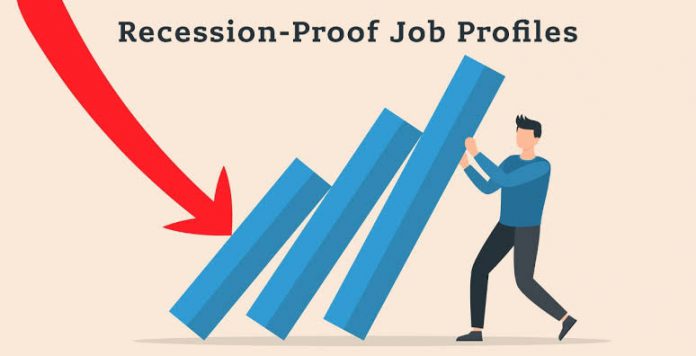In an ever-changing economic landscape, the idea of a recession-proof career has become increasingly vital. As the job market experiences fluctuations, individuals are seeking ways to fortify their professional standing and ensure stability in the face of economic downturns. Whether you’re a recent graduate or a seasoned professional, here’s a comprehensive guide on how to prepare for a recession-proof career.
1. Continuous Skill Development
Investing in your skill set is paramount to staying relevant in any job market. Identify the skills that are in demand in your industry and dedicate time to honing them. Online courses, workshops, and certifications are valuable resources that allow you to adapt to emerging trends and technologies, making you an asset to employers regardless of economic conditions.
2. Diversify Your Skill Set
While specializing in a particular field is crucial, diversifying your skill set can provide added security. Acquiring complementary skills broadens your professional capabilities, making you versatile and adaptable to different roles. This adaptability is particularly valuable during economic downturns when job requirements may shift.
3. Build a Robust Professional Network
Networking is not just about collecting business cards or LinkedIn connections; it’s about cultivating meaningful relationships. Actively engage with professionals in your industry, attend conferences, and participate in online forums. A robust professional network can offer support, guidance, and potential job opportunities during challenging times.
4. Financial Prudence
Preparing for a recession goes beyond professional development; it involves securing your financial well-being. Create a budget, establish an emergency fund, and make informed investment decisions. Being financially prudent provides a safety net, allowing you to navigate career transitions or periods of unemployment with greater ease.
5. Stay Informed About Industry Trends
Awareness of industry trends is crucial for anticipating changes in the job market. Regularly read industry publications, follow thought leaders, and participate in discussions about emerging technologies and market shifts. Being proactive in staying informed positions you to make strategic career decisions before economic downturns impact your industry.
6. Cultivate Soft Skills
In addition to technical skills, employers highly value soft skills such as communication, adaptability, and problem-solving. These skills are transferable across various roles and industries, making you resilient in the face of economic challenges. Focus on developing and showcasing these qualities to enhance your employability.
7. Consider Entrepreneurship
Launching a side business or pursuing entrepreneurship can be a proactive approach to recession-proofing your career. Diversifying your income streams and gaining entrepreneurial experience not only enhances your skill set but also provides an alternative source of income during economic downturns.
8. Embrace Remote Work Skills
The COVID-19 pandemic has accelerated the adoption of remote work. Acquiring and showcasing remote work skills, such as effective communication in virtual environments and proficiency with collaboration tools, is becoming increasingly important. Position yourself as someone who can thrive in both traditional and remote work settings.
9. Focus on Industries with Stability
Certain industries tend to be more resilient during economic downturns. Health care, technology, and essential services are examples of sectors that have historically shown stability. Consider aligning your career with industries that are less susceptible to the cyclical nature of economic fluctuations.
10. Cultivate a Positive Mindset
Finally, maintaining a positive mindset is essential. Job markets can be unpredictable, but resilience and optimism can help you navigate challenges more effectively. Embrace change, view setbacks as opportunities for growth, and approach your career with a proactive and forward-thinking attitude.
In conclusion, preparing for a recession-proof career involves a combination of continuous learning, strategic planning, financial prudence, and adaptability. By investing in both your professional and personal development, you can enhance your resilience and increase your chances of not only weathering economic storms but thriving in the midst of them.
Master Your Coding Skills with BootSelf AI
If you're looking to enhance your coding abilities and upskill in artificial intelligence, look no further than the BootSelf AI app. This innovative platform provides AI-based coding lessons that are tailored to your individual learning pace.
Available on both iOS and Android, you can download the BootSelf AI app and start mastering coding skills today:














